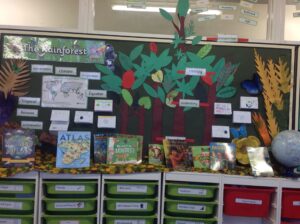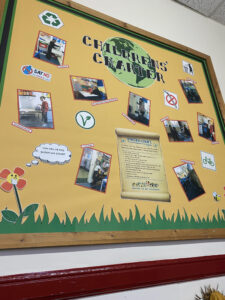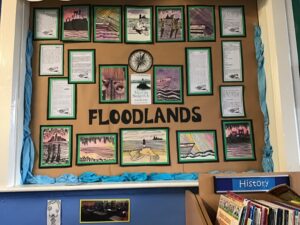GEOGRAPHY
INTENT - OUR VISION FOR GEOGRAPHY
At Porter Croft Academy we shape our geography curriculum to develop children’s curiosity and fascination about the world and its people. Our geography curriculum also links to the United Nations 17 Sustainable Development Goals so that children develop an understanding of climate change and the effects it has upon our planet. Through studies, children investigate a range of places- both in the United Kingdom and abroad- to help develop their knowledge and understanding of the Earth’s physical and human processes. We are committed to providing children with opportunities to investigate and make enquiries about their local area -Sheffield and the Peak District- through finding out what makes it special and unique. We also develop our children’s ability to apply geographical skills to enable them to confidently communicate their understanding to a range of audiences.
Through high quality teaching, we develop the following essential characteristics of geographers:
- An excellent knowledge of where places are and what they are like, both in the United Kingdom and the wider world
- A comprehensive understanding of the ways in which places are interdependent and interconnected
- An extensive base of geographical knowledge and vocabulary
- A solid understanding of geographical enquiry and the ability to apply questioning skills, as well as effective presentation techniques
- The ability to reach clear conclusions and explain their findings
- knowledge ignited through field work skills as well as other geographical aptitudes and techniques
- The ability to express well-balanced opinions, rooted in sound knowledge and understanding about current issues in society and the environment
- A genuine interest in the subject and a real sense of curiosity about the world and the people who live here
WHY GEOGRAPHY IS IMPORTANT?
Geography helps children to understand the world, its environments, places near and far, and the processes that create and affect them. It encourages children to see how we are interconnected through our communities, in our cultural diversity, the interdependence of trade and our future sustainability. Geography is a subject that links to all subjects and provides a context for children to understand the world in which we live.
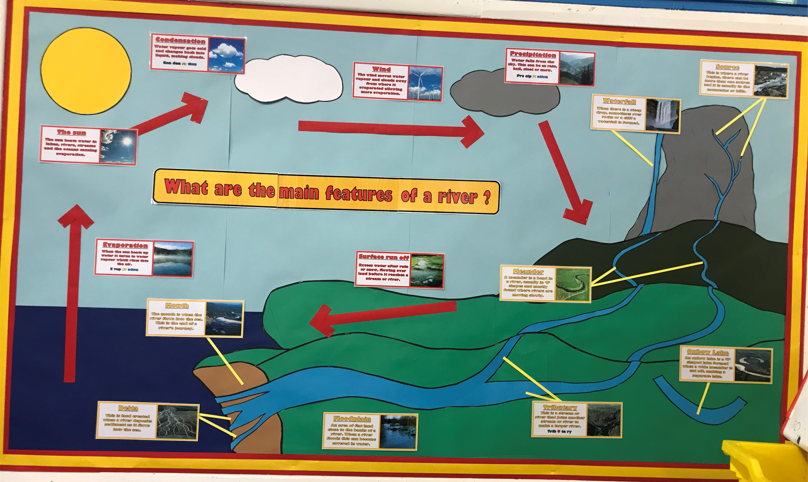
IMPLEMENTATION – GEOGRAPHY PLANNING & SEQUENCING OF KNOWLEDGE & SKILLS
We implement a curriculum that is progressive throughout the whole school. Starting with the Foundation Stage who use the guidance from the ‘Development Matters’, to give children the beginnings to understand the world in which we live. This is followed by Key Stage One exploring and investigating the local area and the United Kingdom and contrasting it with non- European countries. Building on from these skills the children start to learn about the wider area and the different physical processes that effect the Earth. By the end of Year Six, we have confident and well-rounded geographers who can use the skills they have learnt to read maps, investigate different countries and its human and physical processes. We encourage debates and enquiries so that children can begin to present arguments and conclusions found in human geography. We want the children at Porter Croft to be aware and have opinions on real life issues e.g. climate change, rainforest deforestation, waste and pollution.
At Porter Croft, geography is taught through topics which have keys concepts woven through them; the development of knowledge and skills follows the National Curriculum geography framework. Lessons activities are adapted to ensure all learners are supported in line with the school’s commitment to inclusion and to support lesson equity. Outcomes are regularly reviewed through knowledge harvest, retrieval quizzes and knowledge organisers to ensure that pupils can review prior knowledge and can gain a sound understanding of the key identified knowledge and skills.
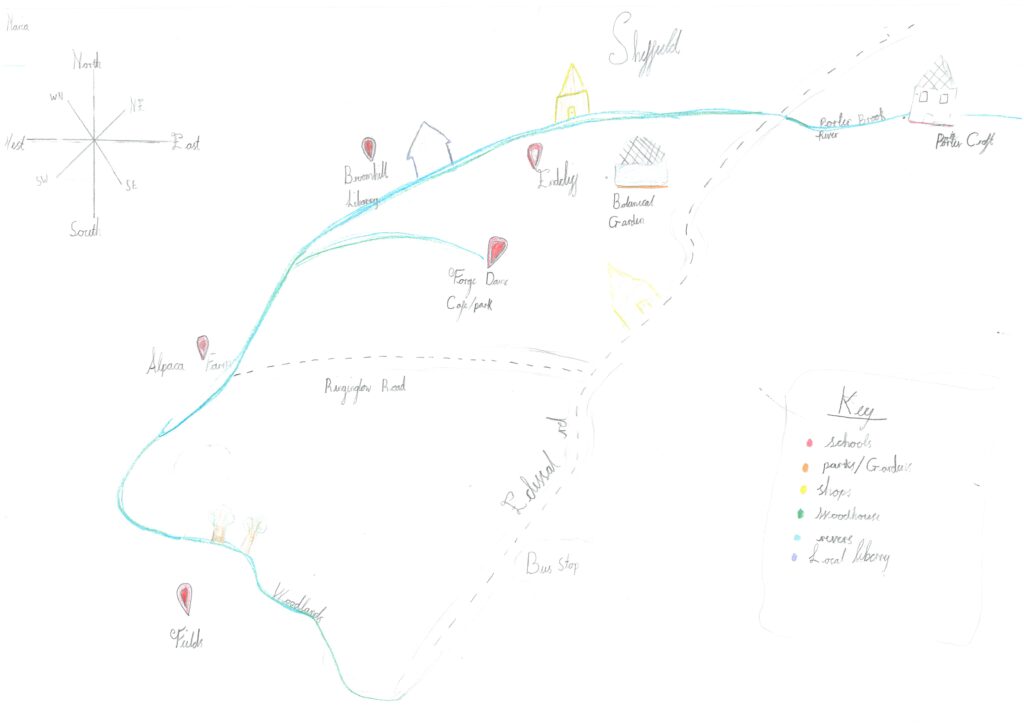
To find out how Geography is planned & sequenced in order that our children can progress through the building blocks for learning, please click below
Geography progression of skills
NATIONAL CURRICULUM PURPOSE OF STUDY
To find out more information about the National Curriculum for this subject & others, please click.
The national curriculum for languages aims to ensure that all pupils:
develop contextual knowledge of the location of globally significant places – both terrestrial and marine – including their defining physical and human characteristics and how these provide a geographical context for understanding the actions of processes
- understand the processes that give rise to key physical and human geographical features of the world, how these are interdependent and how they bring about spatial variation and change over time
are competent in the geographical skills needed to:
· collect, analyse and communicate with a range of data gathered through experiences of fieldwork that deepen their understanding of geographical processes - interpret a range of sources of geographical information, including maps, diagrams, globes, aerial photographs and Geographical Information Systems (GIS)
- communicate geographical information in a variety of ways, including through maps, numerical and quantitative skills and writing at length.
IMPACT OF OUR GEOGRAPHY CURRICULUM
Impact
Our Geography Curriculum is of high quality, well thought out and is planned to demonstrate progression. Outcomes in the children’s topic books will evidence a broad and balanced geography curriculum and demonstrates the children’s acquisition of identified key knowledge and skills. Opportunities to review their own learning are encouraged and with teacher support children are aware of their next learning steps. Additionally, knowledge harvest are used at the end of each topic to record what pupils have learnt and what knowledge needs to be further embedded.
Evidence from book scrutiny, book looks, working walls, lesson study, staff meetings, pupil and staff voice, lesson observations, knowledge harvest and planning documents is used to access children’s knowledge and grasp of geography.
INCLUSION
All geography lessons/activities are designed and planned to include all children through a range of approaches. Lessons are planned to facilitate the best possible outcome for all children within the class. Children are supported through first quality teaching, tailored learning and relevant intervention programmes. In planning lessons teachers will identify the additional support required for SEND pupils in each geography lesson. Consideration will be given to adapt the task given or provide peer or adult support. It is important to note that pupils with learning difficulties can achieve well in geography and should be given every opportunity to access the curriculum.


